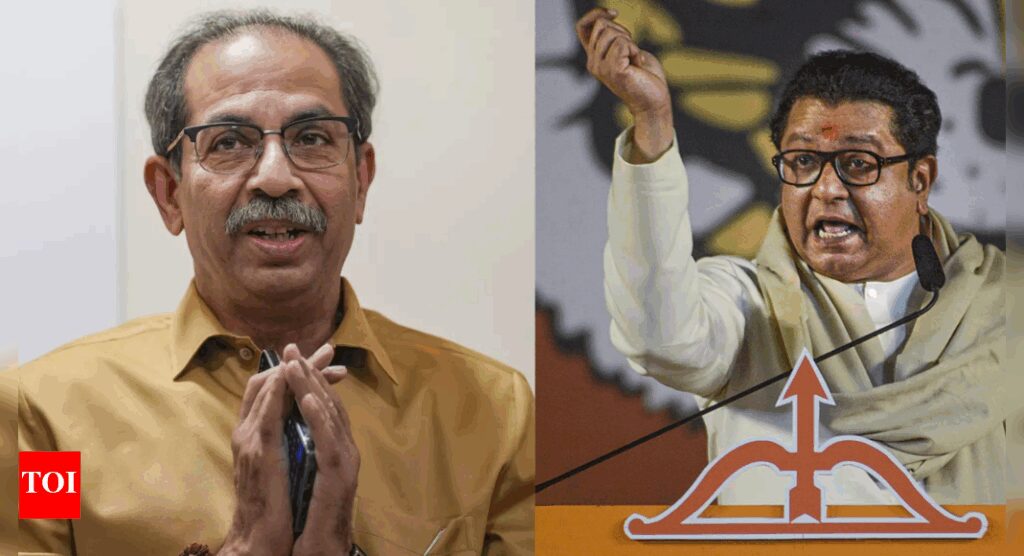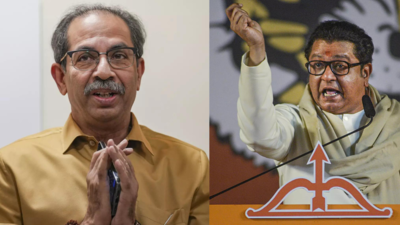NEW DELHI: In what could be another dramatic churn in Maharashtra politics, Shiv Sena (UBT) chief Uddhav Thackeray on Saturday expressed willingness for a political tie-up with his estranged cousin Raj Thackeray.
Uddhav Thackeray’s remark suggesting thaw with his brother, who parted ways and formed his own Maharashtra Navnirman Sena party, comes when the election at India’s biggest municipal body, the Brihanmumbai Municipal Corporation (BMC), is due to be held this year.
“I am ready to come together (with Raj Thackeray). I am ready to come forward in the interest of Maharashtra, keeping aside minor incidents. I have put an end to all fights. The interest of Maharashtra is my priority,” Uddhav Thackeray, who is also Maharashtra’s former CM, was quoted as saying by news agency ANI during his address at the 57th annual general meeting of Bharatiya Kamgar Sena.
Uddhav Thackeray’s move to ride the new political wagon comes at a time when the Maha Vikas Aghadi, formed to counter the BJP, has been reeling from a crisis ever since its humiliating loss in the Maharashtra assembly elections last year.
Raj Thackeray and Uddhav Thackeray, two key figures in Maharashtra politics, share a long and complex history shaped by the towering legacy of the late Bal Thackeray, their uncle and father, respectively, who founded the Shiv Sena. Their political journeys, once aligned under the same saffron banner, gradually diverged into rivalry and competing visions.
While both were groomed in the party’s ranks, Raj was long seen as the natural heir due to his oratory style and aggressive street politics that mirrored Bal Thackeray’s persona. However, in the early 2000s, Balasaheb chose Uddhav, his quieter and more organisationally minded son, to lead the party, “sidelining” Raj.
This decision created a rift, culminating in Raj’s exit from Shiv Sena in 2005.
He soon launched his own party, the Maharashtra Navnirman Sena (MNS), with a similar pro-Marathi ideology, but it failed to match the dominance of the original Sena. Since then, Raj and Uddhav have often found themselves on opposing sides of Maharashtra’s political battles, with sporadic talk of reconciliation but no real unity.
While Uddhav led Shiv Sena into an alliance with ideologically divergent parties like the Congress and NCP under the MVA to keep the BJP out of power, Raj oscillated between supporting the BJP and positioning himself as an independent force, often attempting to reclaim his relevance through hardline rhetoric against Hindi and north Indian migrant workers in Mumbai or issue-based campaigns.
Their relationship today remains politically distant, shaped more by competition and legacy than by family ties.







